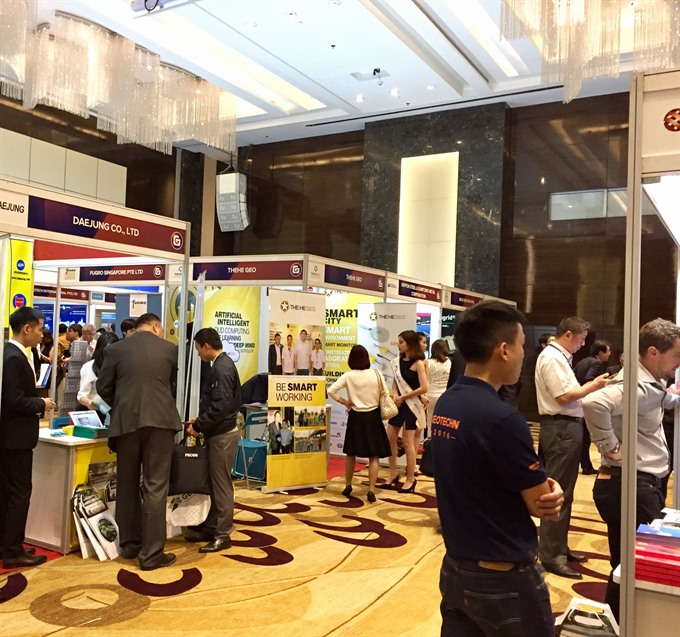Viet Nam News HÀ NỘI – Cutting edge geotechnics has an important role to play in an emerging economy like Việt Nam, deputy minister of transport Nguyễn Hồng Trường said on Thursday.
Geotechnics, or geotechnical engineering, is a branch of civil engineering concerned with the study and modification of soil and rocks.
Speaking at the third edition of the international conference on geotechnics in Hà Nội, Trường said the conference offers a valuable opportunity to reduce the geotechnical gap between Việt Nam and the world. “It creates a playground for international and Vietnamese scientists to learn from each other. The ministry will consider applying the knowledge and experience gained in implementing its Strategy on Sustainable Traffic Development,” Trường said.
The two-day GEOTEC HANOI 2016 conference, whose theme is sustainable infrastructure development, has attracted around 500 participants from across the world. It has been organised by Fecon JSC, a Vietnamese company in underground construction, along with the Việt Nam Society for Soil Mechanics and Geotechnical Engineering and the Japanese Geotechnical Society.
Ikuo Towhata, vice-president of International Society for Soil Mechanics and Geotechnical Engineering, expressed his concern about the traffic infrastructure in large cities such as Hà Nội and HCM City, which are seeing a rapid increase in the number of vehicles.
“Unless mass transits such as subways are introduced, traffic in big cities will become very difficult soon,” he said. “Such a situation has happened before and is happening now in Bangkok, Manila, Jakarta and Mumbai, where I am living.”
For economic development, cities require not only local public transport, but also long-distance rapid railways and motorways, he said. “This suggests that business demands for geotechnical engineering will be high in the very near future (in Việt Nam),” Towhata said.
Phạm Việt Khoa, Fecon’s managing board chairman, said that though the demand for sustainable infrastructure development is rising rapidly, construction techniques in Việt Nam still lag behind the rest of the world by two to three decades. “We wish to create a forum that has the participation of state officials, scientists and enterprises that help implement cutting-edge technologies in infrastructure development, meeting the three key criteria of speed, effectiveness and sustainability,” he said.
At the conferences, 13 papers on coastal geotechnics against climate change and 67 other papers on deep foundations, underground construction and tunnelling, ground improvement and monitoring and maintenance work were presented. The papers presented were selected from the 145 papers submitted by authors in 31 countries, especially Việt Nam, Japan, South Korea and China.
On the sidelines, 44 firms took part in an exhibition that showcases their latest construction technologies and designs.
The first and second GEOTEC conferences were held in the capital in 2011 and 2013. — VNS
 Society
Society






